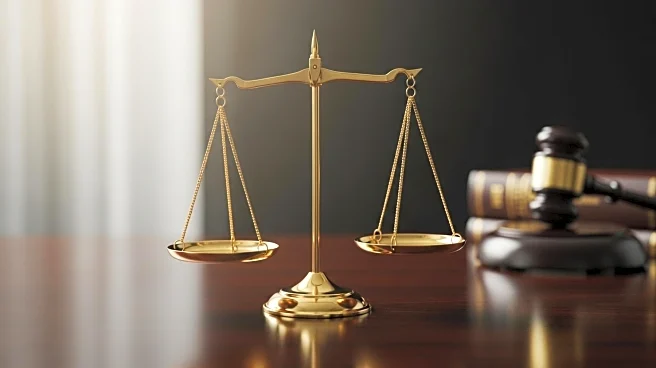What is the story about?
What's Happening?
A federal judge has ordered an evidentiary hearing to determine if the prosecution of Kilmar Abrego Garcia was vindictive. Abrego Garcia, who was mistakenly deported to El Salvador earlier this year, is facing human smuggling charges after a 2022 traffic stop investigation was reopened. U.S. District Judge Waverly Crenshaw cited statements by Deputy Attorney General Todd Blanche as potentially indicative of vindictiveness, suggesting that the charges may be retaliatory due to Abrego Garcia's successful legal challenge against his deportation. The Department of Homeland Security has made several allegations against Abrego Garcia, including claims of gang affiliation and criminal activity, which he denies. Abrego Garcia has pleaded not guilty and rejected a plea deal offered by the government.
Why It's Important?
The case highlights significant concerns about the potential misuse of prosecutorial power and the rights of individuals challenging government actions. If the prosecution is found to be vindictive, it could set a precedent affecting how similar cases are handled, particularly those involving immigration and deportation challenges. The outcome may influence public perception of the justice system's fairness and the treatment of immigrants, potentially impacting future policy and legal strategies. The case also underscores the tension between federal authorities and individuals asserting their legal rights, with broader implications for civil liberties and government accountability.
What's Next?
The scheduled evidentiary hearing will delve into the motivations behind the charges against Abrego Garcia. Depending on the findings, there could be significant legal ramifications, including the possibility of dismissing the charges if vindictiveness is proven. The Justice Department and Immigration and Customs Enforcement may face increased scrutiny, and the case could prompt calls for policy reforms to prevent similar situations. Stakeholders, including immigrant rights groups and legal advocates, are likely to monitor the proceedings closely, potentially influencing future advocacy and legal challenges.















